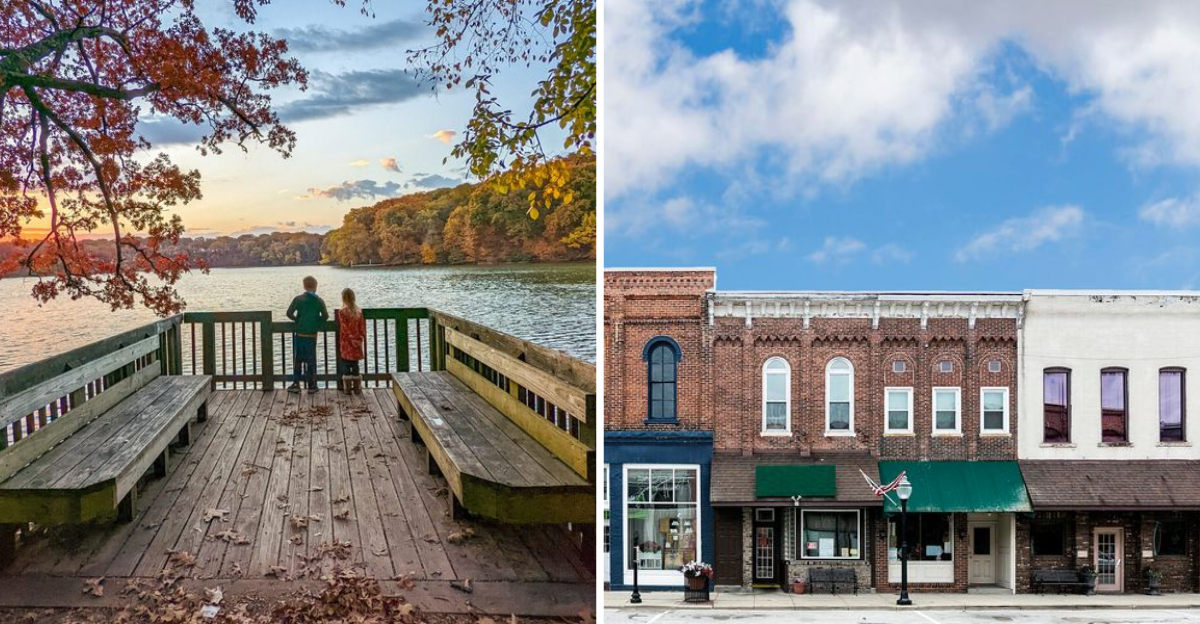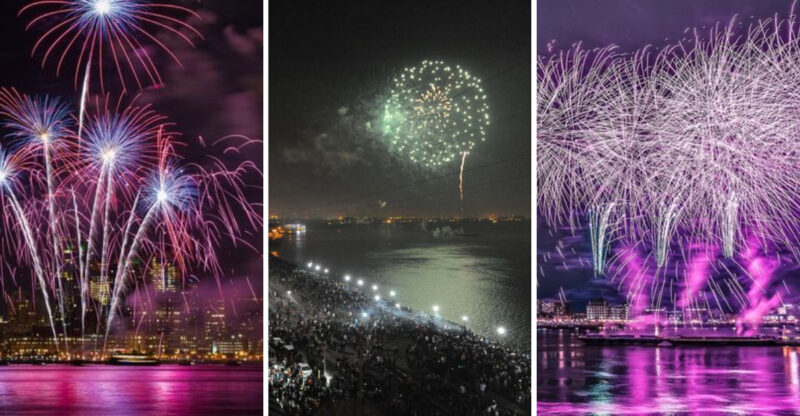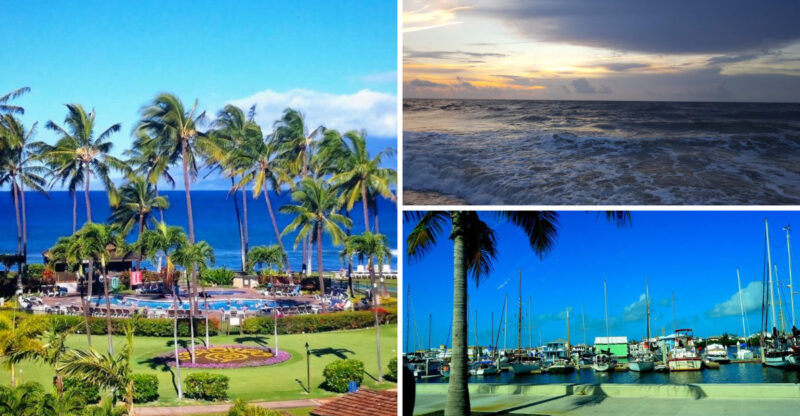Surprising Reasons This Midwest Flyover State Has More Free Time Than The Rest Of Us

Have you ever wondered why some people seem to have endless hours in their day while you’re rushing around nonstop? It turns out that folks living in certain Midwest states have cracked the code to enjoying more free time than the rest of the country.
While coastal cities buzz with traffic jams and packed schedules, residents in these so-called “flyover” states are kicking back with extra hours to spare. I’m going to show you exactly how they do it and what makes their lifestyle so surprisingly relaxed.
1. Shorter Commute Times Mean More Hours at Home
If you’ve ever spent two hours stuck in bumper-to-bumper traffic, you know how draining long commutes can be. People in Midwest states typically drive just 15 to 20 minutes to reach their jobs, giving them back precious hours every single week. That’s time they can spend with family, pursuing hobbies, or simply relaxing at home.
When your workplace sits just around the corner, you’re not burning gas or patience on crowded highways. You wake up later, arrive home earlier, and actually have energy left for dinner. Compare that to coastal city dwellers who lose 10 or more hours weekly just sitting in traffic.
This simple geographic advantage adds up to an entire extra day of free time each month.
2. Lower Cost of Living Reduces Work Hours Needed
Did you know that housing in many Midwest states costs less than half what you’d pay on either coast? This affordability means families don’t need multiple jobs or endless overtime to make ends meet. When your mortgage or rent is reasonable, you can actually work a standard 40-hour week and still live comfortably.
I’ve seen how this plays out in real life. Parents can attend their kids’ soccer games instead of working second shifts. Young professionals enjoy weekends off rather than hustling for side gigs.
The financial breathing room translates directly into time freedom. You’re not chained to your desk trying to afford basic necessities, so you get to choose how you spend your evenings and weekends.
3. Community-Focused Culture Values Balance Over Hustle
Where I come from, people actually stop to chat with neighbors instead of rushing past with earbuds in. Midwest culture prizes relationships and balance over climbing corporate ladders at breakneck speed. This mindset shift makes all the difference when it comes to protecting your personal time.
Bosses understand that employees have lives outside work. Stores close at reasonable hours because everyone agrees that workers deserve evenings with their families. It’s not about being lazy it’s about recognizing that life includes more than paychecks.
When your entire community shares this value system, you’re not pressured to sacrifice every weekend for work. Instead, you’re encouraged to show up at neighborhood barbecues and local events.
4. Fewer Entertainment Options Mean Less FOMO Pressure
It’s actually liberating when you’re not constantly bombarded with a hundred different events competing for your attention. Big cities offer endless concerts, shows, and trendy restaurants that create serious fear of missing out. Midwest residents skip this exhausting cycle entirely.
When there are fewer options, you make decisions faster and stress less about what you’re supposedly missing. Your Friday night might involve a local high school football game or dinner at the one Italian place everyone loves. Simple choices mean you spend less time scrolling through event listings and more time actually enjoying yourself.
This streamlined social calendar frees up mental energy and actual hours. You’re not racing across town trying to hit three different venues in one night.
5. Strong Family Networks Provide Built-In Childcare Support
How much would your life change if reliable babysitters lived right next door or down the street? Many Midwest families benefit from having grandparents, aunts, uncles, and cousins nearby. This extended family network means parents don’t spend hours arranging complicated childcare or paying hefty daycare fees.
When grandma can pick up the kids from school or watch them on Saturday, parents gain flexibility that feels almost magical. You can run errands without dragging three kids along. Date nights happen without weeks of advance planning.
This support system isn’t just convenient it gives parents back significant chunks of time they’d otherwise spend coordinating schedules or driving across town for pickup and drop-off duties.
6. Seasonal Rhythms Create Natural Downtime Periods
When winter dumps two feet of snow overnight, you’re not fighting through it to maintain your usual hectic pace. Midwest weather forces people to slow down during certain months, creating built-in rest periods that other regions never experience. Schools close, meetings get postponed, and everyone accepts that some days you just stay home.
This seasonal rhythm teaches you that constant productivity isn’t realistic or necessary. Summer brings long daylight hours for outdoor activities, while winter encourages cozy nights indoors with family. You learn to work with nature’s schedule rather than fighting against it.
These weather-imposed breaks give your mind and body regular chances to recharge without guilt or excuses needed.
7. Less Social Media Competition Reduces Digital Time Drain
Are you constantly checking Instagram to see what everyone else is doing? Midwest communities tend to have less intense social media cultures compared to urban influencer hotspots. People share genuine moments rather than curating perfect feeds, which means less time wasted scrolling and comparing.
When your neighbors aren’t posting every meal and outfit, you feel less pressure to document your entire life online. You actually experience moments instead of photographing them from twelve angles. Real conversations happen over coffee instead of through comment threads.
This healthier relationship with technology returns hours to your week. You’re living your actual life rather than performing it for an audience, which ironically gives you more interesting experiences to share when you do post.
8. Small-Town Simplicity Cuts Down Decision Fatigue
When you have just two grocery stores instead of twenty, picking where to shop becomes a five-second decision rather than a half-hour research project. People living in smaller Midwest communities spend way less mental energy on everyday choices. There aren’t endless restaurant options to scroll through or ten different yoga studios to compare.
This simplicity frees up tons of brainpower and actual time. Instead of spending evenings researching the best place for dinner or which gym has the coolest equipment, folks can just go to their usual spots and get on with their lives. Decision fatigue is real, and it drains energy faster than most people realize.
With fewer choices demanding attention, Midwesterners preserve their energy for things that actually matter to them personally.
9. Accessible Outdoor Recreation Means No Travel Time
Imagine stepping out your back door and being at a beautiful lake or hiking trail in under ten minutes. That’s everyday reality for many Midwesterners, who don’t need to drive two hours through traffic just to see some trees. Parks, lakes, and trails are woven right into communities, making outdoor fun incredibly accessible.
Coastal residents often spend their precious weekend hours stuck in cars heading to nature spots. By the time they arrive, half the day is gone. Midwest folks skip that hassle entirely. A quick bike ride gets them to fishing spots, walking paths, or picnic areas without the exhausting journey.
More access with less travel equals more actual recreation time and less stress about planning big adventures.
10. Relaxed Pace of Service Encourages Patience
Walk into a Midwest cafe and you might notice something unusual: nobody’s tapping their foot impatiently or checking their watch every thirty seconds. Service happens at a human pace, and people have genuinely accepted that rushing won’t make the coffee brew faster. This cultural patience spreads into every aspect of daily life.
When everyone around you operates without constant urgency, you naturally slow down too. Waiting an extra three minutes doesn’t feel like a catastrophe. Conversations with cashiers happen without guilt about holding up the line.
This slower rhythm might seem inefficient at first, but it actually reduces stress hormones that make people feel perpetually behind schedule. Time feels more abundant when you’re not fighting against every single minute.
11. Weather Forces Regular Indoor Rest Days
Brutal winters and unpredictable spring storms create built-in pause buttons that coastal residents rarely experience. When temperatures drop below zero or a blizzard rolls through, outdoor plans get canceled automatically. There’s no guilt about staying home because nobody can go anywhere anyway.
These weather-imposed rest days train Midwesterners to embrace downtime without feeling unproductive. While people in milder climates feel pressure to constantly be out doing something, harsh weather provides a legitimate excuse to slow down. Reading, cooking, or just lounging becomes perfectly acceptable.
Over time, this creates a healthier relationship with rest. People learn that taking breaks isn’t lazy it’s sometimes mandatory, and that’s actually pretty refreshing for mental health.
12. Local Everything Eliminates Errand Marathon Days
Running errands in big cities can devour entire Saturdays as people drive across town hitting different stores in various neighborhoods. Midwest towns cluster essential businesses within a few blocks, turning a day-long chore marathon into a quick forty-five-minute loop. The hardware store sits next to the pharmacy, which is across from the grocery store.
This geographic convenience is a massive time-saver that adds up week after week. No need to map out the most efficient route or budget three hours for basic shopping. Everything’s right there, often with easy parking directly in front.
What would take coastal residents half a day gets done before lunch, leaving afternoons wide open for hobbies, relaxation, or spending time with loved ones.






